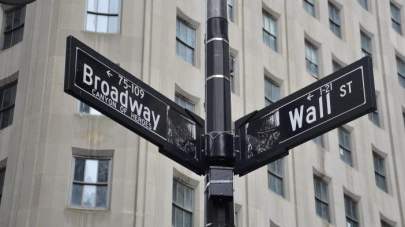Congressional Rebuke and Presidential Veto Cement ESG as a Hot Topic
Friday, March 3, 2023
Written by Zachary Halaschak & Jeremy Beaman, Washington Examiner Economics Reporter
Categories: ASCF News

President Joe Biden’s first veto won't involve immigration, inflation, crime, or foreign policy — rather, it will relate to a three-letter acronym that is rapidly gaining political salience: ESG.
ESG, which is shorthand for environmental, social, and governance, has evolved from being a somewhat obscure investment philosophy several years ago to a huge consideration in the corporate world today. This week Congress handed Biden a bipartisan (though barely) rebuke of the ESG movement and teed up his first presidential veto — showing just how big of a flashpoint it has become and portending the bigger role it will play in the 2024 elections.
MANCHIN AND TESTER VOTE WITH GOP ON ESG MEASURE, SET TO FORCE FIRST BIDEN VETO
While most of the pushback to ESG has come at the state level, particularly from Republican state treasurers and attorneys general, the latest opposition is at the national level.
With support from centrist Sens. Joe Manchin (D-WV) and Jon Tester (D-MT), the Senate narrowly voted this week to roll back a Labor Department rule that allows retirement plan managers to weigh ESG matters when making investments. The White House said Biden will veto the resolution, meaning that the rule isn’t expected to go away despite the desire of Congress.
Still, the rebuke from congressional Republicans and a few Democrats has pushed the issue to center stage. Riley Moore, an anti-ESG crusader and West Virginia’s state treasurer, said that the legislation and veto set the stage for the debate to play out on the public stage entering the 2024 elections.
“This is just getting going, this is just the tip of the iceberg — I think you’re going to see a lot more federal action on this,” Moore, who is also running for Congress in 2024, told the Washington Examiner on Thursday. He added that if he is elected, he will continue to push against ESG at the federal level.
Those who support further integrating ESG into investment decisions and finance more generally see it as a way that the private sector can affect social change, such as by limiting climate change by discouraging investment in fossil fuels. Republicans see the growing push as an attempt to distort the free market and, in some respects, even culture through capital and influence.
The conflict is likely to play out on the presidential campaign trail.
Florida Gov. Ron DeSantis, who is seen as a Republican front-runner in 2024, launched a broadside against ESG earlier this year. DeSantis is pushing Florida to prohibit the use of ESG in all investment decisions at the state and local level, ban state and local entities from any consideration of ESG in the contracting process, and block state and local governments from weighing ESG when issuing municipal bonds.
One presidential candidate, 37-year-old entrepreneur Vivek Ramaswamy, has tethered much of his campaign entirely to fighting ESG. He has bashed so-called “woke capitalism” and has been preaching about restoring self-governance.
“You can say ‘woke’ until you're blue in the face,” Ramaswamy told the Washington Examiner this week. “I'm proud of the foot soldiers who have taken on this cause, but as much as they're trying to catch up on this issue — it's a complicated issue, sorting this out for themselves — one of my roles has been to really explain it to them.”
Moore said that former President Donald Trump, who is also running in 2024 after being defeated by Biden in 2020, was “ahead of the curve” on ESG and created the conditions for the upswell in pushback it is receiving today. He noted that the Labor Department rule driving headlines today was an attempt to roll back Trump-era restrictions on fiduciaries’ ability to consider ESG factors when choosing investments.
“Just to be fair here, Trump certainly — his administration — did something about this a while ago,” Moore said, who has endorsed Trump’s latest presidential run.
Reaching beyond just the political realm and into a bit more of the cultural realm, ESG has also entered the national lexicon through the efforts of media juggernauts like Twitter CEO and Tesla founder Elon Musk. Musk has used his newly acquired social media company to bash ESG in front of his 130 million followers.
“The S in ESG stands for Satanic,” Musk said in January.
“I am increasingly convinced that corporate ESG is the Devil Incarnate,” he said last year. “ESG rules have been twisted to insanity,” he opined in another missive.











